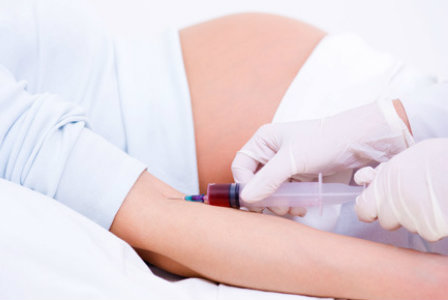BGI study confirms accuracy of its NIFTY in nearly 147,000 pregnancies

|
BGI has published a study tracking the clinical performance of its whole genome sequencing-based non-invasive prenatal test (the NIFTY® test) in nearly 147,000 pregnancies, the largest such study to date. The results showed high sensitivity and specificity and no significant difference between high-risk and low-risk pregnant women.
The study, published in the journal Ultrasound Obstetrics and Gynecology, reported on 146,958 samples from 508 medical centers in mainland China, which were collected between early 2012 and mid-2013 for trisomy 21, 18, and 13. Although NIFTY® measures other chromosomal abnormalities, these results were not included in the study.
According to the study’s results, NIFTY® identified 1,578 trisomy-positive and 145,380 negative samples. Comparing the results with follow-up confirmatory invasive testing, or by tracking patients’ eventual pregnancy outcomes, the study team then calculated the false positive (FPR) and false negative rate (FNR) for each tested trisomy, and the overall sensitivity, specificity, and positive predictive value (PPV).
Overall, the study showed the sensitivity of NIFTY® as 99.1 percent, 98.2 percent, and 100 percent in the three trisomies (T21, T18, T13), respectively. Specificity was 99.95 percent in each case. For T21, the FPR was 0.05 percent, and the PPV was 92.19 percent. For T18, the FPR was also 0.05 percent, and the PPV was 76.6 percent. FPR and PPV for T13 were 0.04 percent and 32.84 percent, respectively.
The study confirms the performance metrics of earlier smaller studies of NIPT from both NIFTY® and other providers, in a significantly expanded sample range. The data also shows that the NIFTY® test’s performance did not differ substantially among higher- and lower-risk women.
Wang Wei, the study’s first author, comments, “In this paper, we showed the first-hand information of NIPT performance in a very large population, and consistency with the accuracy shown in small studies. The results also suggested that high quality of NIPT service can be achieved at NGS-based clinical labs with strict protocols and standards.”
Importantly, the study authors note that most confirmed false positives and false negatives in the study could be traced to noticeable biological factors, such as maternal copy number variation or mosaicism. Wang said that the group was somewhat surprised to find that low fetal fraction was not a major contributor to NIPT misdiagnoses in their cohort, considering that the importance of fetal fraction has been “overwhelmingly emphasized in the past few years, and low fetal fraction is believed to be a major risk of causing NIPT false results.”
With the largest and most comprehensive evidence of NIPT performance in low-risk pregnant women, Wang expects “a bright future of using NIPT in the general population.”
###
Press Office
.(JavaScript must be enabled to view this email address)
BGI Shenzhen
Journal
Ultrasound Obstetrics and Gynecology
Print Version
Tell-a-Friend comments powered by Disqus





